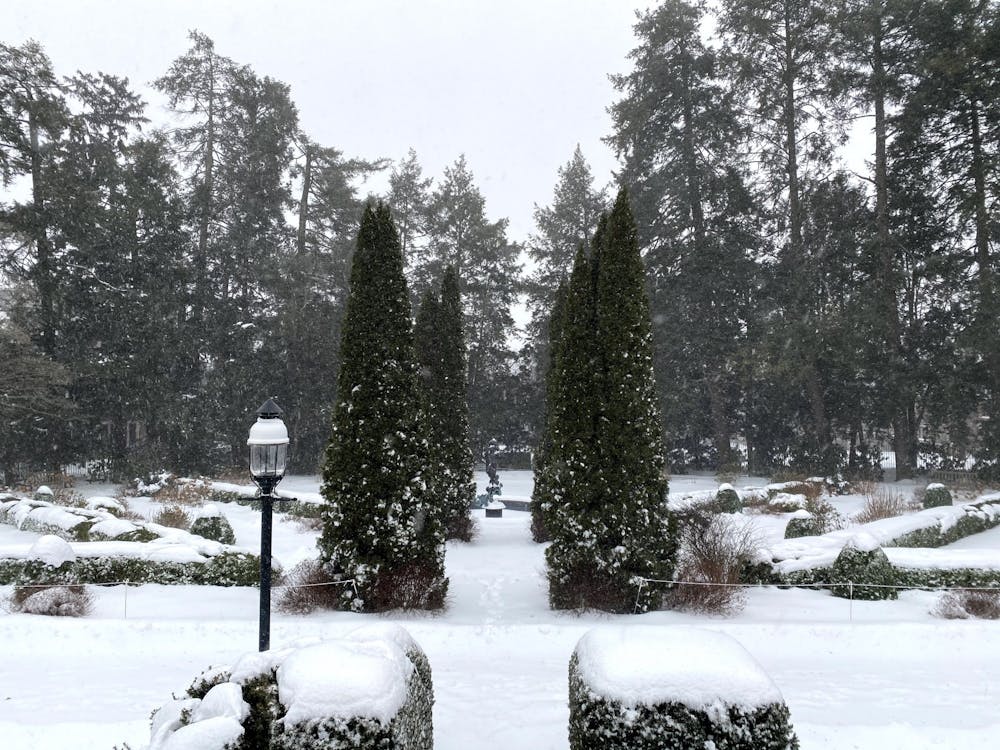Since January of 2021, the University has reserved two weeks in January for Wintersession, a program that offers free classes, workshops, trips, and events to students, faculty, and staff.
I have attended Wintersession for the past two years, and it has been a special and positive contribution to my Princeton experience. It is an opportunity that deserves to expand in the coming years.
Wintersession’s primary objective is to “promote connection and growth beyond the resume.” In other words, it offers students and faculty the chance to learn for the sake of learning itself. During the school year, the constraint of deadlines and career and academic stressors can cause the Princeton community to work itself to the bone. However, Wintersession has offered me an invaluable opportunity to reflect on why I came to Princeton in the first place: to broaden my horizons, to connect with others, and to enjoy learning.
It is a liberating and enriching experience to attend classes with a range of ages and majors; it reminds me that I am surrounded by a supportive and curious community. Another unique strength of Wintersession is its involvement of faculty, staff, and graduate students.
“I liked how Wintersession was open to all of the Princeton community,” read one testimonial from a staff member. “It was great to teach a range of expertise and people who just wanted to learn more, particularly faculty.” Wintersession’s zero-stakes focus on education is a celebration of learning for all Princetonians.
Wintersession’s course and activity offerings provide students with the chance to explore new activities and delve into academic subjects outside of their major. It also allows students to discover interests that aren’t otherwise financially accessible to them.
“I would not get to do these things (go snowboarding, go to DC) without support from Wintersession,” read another testimonial from a graduate student .
Highlights from this year’s offerings include skiing trips and classes from blacksmithing to woodworking, to medical skills development — all activities that many college students haven’t had the chance to explore. Other courses, such as How to Have a Hobby, Adulting 101, and Financial Literacy, focus on life skills that help prepare students for their post-university lives. Some are dedicated to thesis prep and research support or even to teaching the basics of academic subjects — the latter of which is a great way for underclassmen to explore different majors or academic paths.

This year, I personally found Introduction to Machine Learning to be a comprehensive but accessible introduction to data science. As a computer science major considering data science courses in upcoming semesters, this workshop solidified my decision to delve deeper and gave me a working foundation upon which to build more understanding.
Importantly, Wintersession offers a low-stakes way for students to ease into a new semester without the added pressure of adjusting to their classes. During winter break, students can feel disconnected from the Princeton community and might find it difficult to transition back into college life.
However, this two-week experience provides students fun opportunities to reconnect with college friends and readjust to a learning environment. Locals can commute, while students from further places can take advantage of the open housing and dining halls to settle into campus early. Reacclimation to Princeton is made easier by Wintersession’s relaxed social and educational engagements, rather than the usual rush back into classes.
With this being said, Wintersession does have room for improvement. Its primary issue is that the opportunity for students to participate in its unique and fun activities is limited by event resources and space.

In my experience, popular activities and trips fill up minutes after registration opens. I have seen waitlists stretch over 250 people long for novelty offerings like ski trips, New York City visits, or crafting activities. The University should invest in opening additional sections for sought-after courses and increase event capacities to make Wintersession more accessible to all students. Furthermore, it should make online resources for classes available to students who cannot attend due to enrollment capacity or travel constraints, where possible.
Wintersession is a unique way that the University embodies its commitment to fostering lifelong learning in its community members. For me, it has been a chance to reconnect with old friends, appreciate my community, and take interesting classes. Despite issues with high demand and low-capacity activities, this two-week event is a great opportunity for students to explore new hobbies, learn new skills, and transition back into a new semester.
Tara Shukla is a sophomore from Highland Park, N.J., studying computer science and economics. Tara can be reached at ts6796@princeton.edu.








